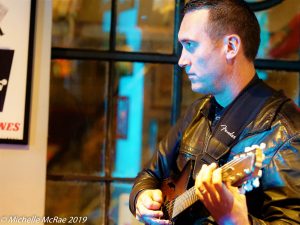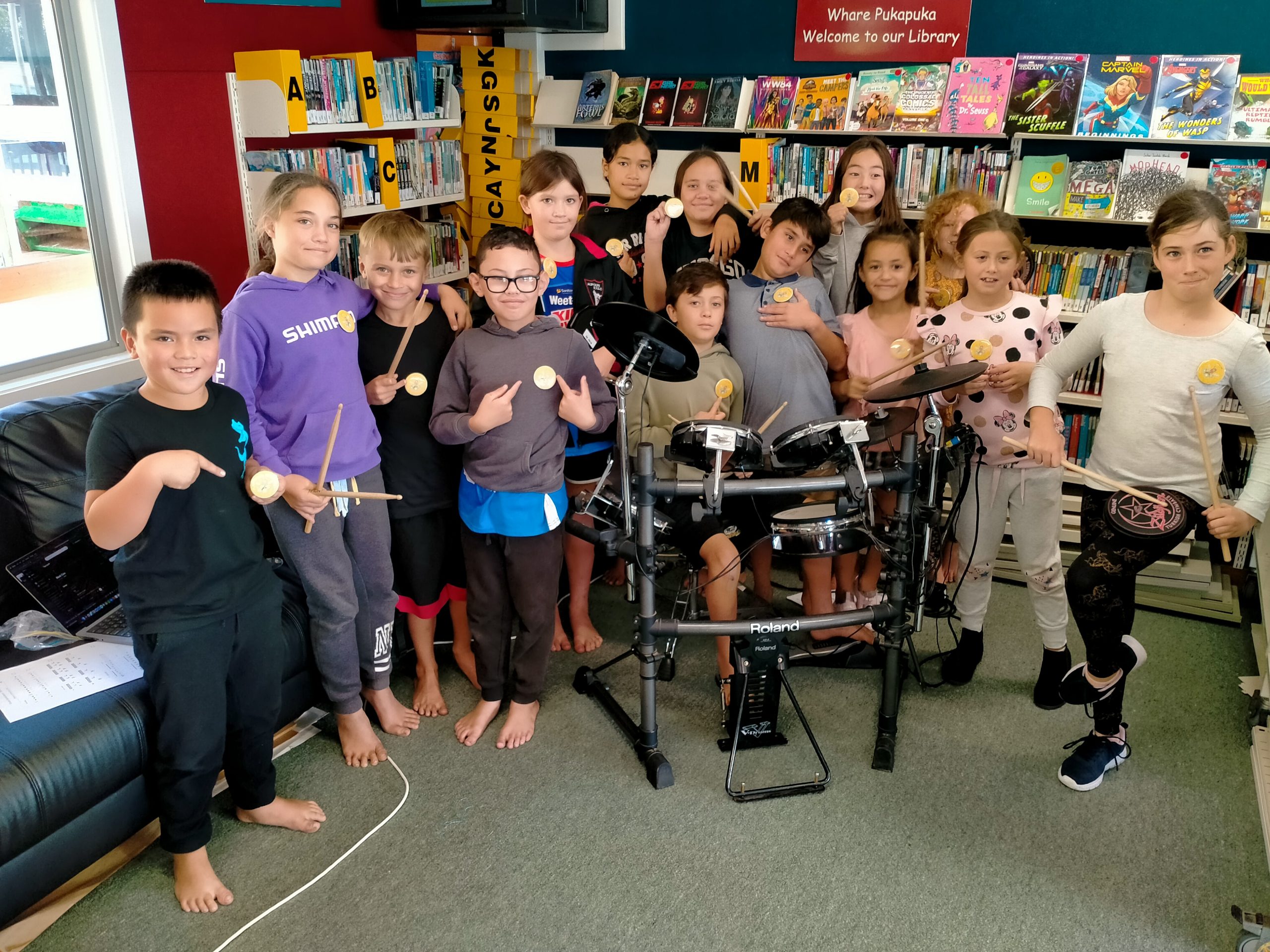What a tough time for musicians and music in general!
As society emerges from Covid restrictions and the world regains a sense of normality, we musicians are now getting those bookings again and able to share our music. As much as our work as music educators has endured the restrictions, it has been stressful. Planning events for students only to have them cancelled, being forced to run performance assessments in front of a camera and a handful of people (teaching in a mask no less) has been tough and yet for the belief in the value that learning an instrument and expressing creativity through music – we push on.
Likewise, my project, Te Hiku Music Academy, has been affected by the same setbacks and essentially, with everyone just holding on for the ride, the ability for people to give thought to moving in a different direction in employing a primary music specialist has been a hard sell.
I became determined to devote my effort to finding and working with talented kids way earlier. I want to create the conditions for young talented musicians to excel and not just leave it to chance. In my opinion, as a primary trained teacher that has worked for a decent amount of time in Secondary, I found that many of our 13-year-olds are arriving at High school having not touched an instrument- unless they have grown up in circumstances where the parents have the means to invest in private music lessons or are musicians themselves.
During my time in Wellington studying music, I met Jonny Wilson, an entrepreneur and Jazz school alumni who, in 2010, had built a Music school in Lower Hutt with a client base of 2500 students and a large staff. His model was birthed out of building a group of 30 drum students and now they send Music buses to local Primary schools around the Wellington area. This inspired me to establish an academy in the Far North.
On my return to the Far North, I worked in Kaitaia College and have had the opportunity to work at Kaitaia Primary one day per week. In April, I started my academy project at Pukenui School with the intention of starting at Oturu, Ngataki and Te Hapua in the coming weeks. Already, I have found a lot of enthusiasm from the students. It is a lovely change to arrive at my schools and be greeted and helped by my enthusiastic 9 and 10-year-olds.
Music is a partnership, not competition…
I was recently reflecting on my time in Wellington with a new friend and described the ferociously competitive music environment there. This undoubtedly causes some to sink and brings out the best in others. At the heart of it is the desire to represent your art in the best way possible. The best musicians want to work with others at their level. It is understandable.
However, in returning to the Far North and facing the challenges I have described above, we don’t have the luxury of picking and choosing who ‘makes the grade’. We have a shortage of teachers, and resources and distance are our enemy. Competition in our area only serves to fragment the tiny amount of momentum we have. And it is because of that belief that I sought to network with existing music programme providers who operate in the primary school space in the Far North. One such person who has been visionary yet quietly going about their trade is Sharyn Van Heerden, a local RTLB and music enthusiast. 17 years ago, she saw the same need as I do and established a charitable trust in the Far North named “Whakaaro Tahi” (think together). Her team is about five itinerants who teach a range of instruments from drums, bass and guitar to ukulele, cello, violin and flute in various schools in the Far North. We met together in 2021 and I wanted to glean as much as I could from her experience, and we both wanted to avoid competing for the same tutors, schools and same students. Already, Sharyn has shown support for my initiatives, for which I am grateful and has provided tuition and resourcing in different ways.
We are confident we can achieve more by supporting each other with our slightly different focuses. Still, there is much more work to do in working together across the Far North to communicate and strategise.
And we are only just getting started. In reality, Te Hiku Music Academy, despite receiving regular praise and enthusiasm from people I talk to (Iwi representatives, Ministry representatives, fellow musicians, teachers and principals), it only consists of two people going into four schools.
I dream about having a mobile music facility (or even multiple facilities) that can solve the problem of distance by being equipped with all the appropriate equipment to deliver tuition in drums, guitar and keyboard to students across the Far North. It is my intention to establish it as a charitable trust in time, but in the meantime, we work as contractors and through staff funding.
Eventually, I’d love to leverage my connection to the Wellington music schools and beyond to harvest some of the talent that emerges from there who would like to get into teaching. I think that there is a huge potential for us to attract young musicians who have done their paces by paying for the one-year course of study that is the Secondary Teaching Diploma in exchange for them teaching in the Far North for two years, much like the teachers of yesteryear being bonded to their schools.
All of these initiatives and ideas take time and, ultimately, risk. Music education is nothing new, but certainly, we need to be prepared to think more creatively and collectively if we want to see our young people maximise their talent.
Words: Jon Pirini

BIO: Jon Pirini – Te Hiku Music Academy. Primary Music Specialist, accredited PLD facilitator, B.Ed in Teaching Primary, BMus Jazz Performance.
